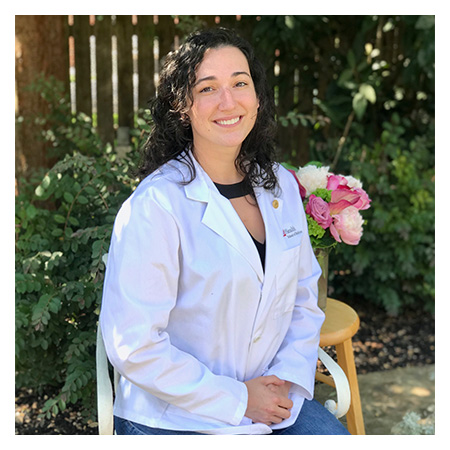Functional Endoscopic Sinus Surgery During Pregnancy Gives a Medical Student Relief
 Becka Czyz suffered recurrent sinus infections from an early age, with difficulty breathing, persistent nasal drainage, and trouble sleeping. She underwent an adenoidectomy at the age of 10 but continued to struggle with head and face pain, which led to a cycle of insomnia and emotional distress.
Becka Czyz suffered recurrent sinus infections from an early age, with difficulty breathing, persistent nasal drainage, and trouble sleeping. She underwent an adenoidectomy at the age of 10 but continued to struggle with head and face pain, which led to a cycle of insomnia and emotional distress.
“Because I had always had sinus problems, I didn’t really understand how bad my sinuses were,” Czyz says. “I began to wonder if I had an autoimmune disorder and was in and out of doctors’ offices for years. No one could give me a diagnosis.”
Despite her persistent health problems, she started medical school at The University of Texas Medical Branch at Galveston in 2020. Two years later, she planned a pregnancy, and her son was born in June 2022.
In 2023, Czyz contracted COVID-19, which led to a yearlong exacerbation of her chronic nasal symptoms. Her long-term use of antibiotics resulted in medication-resistant Clostridioides difficile, a bacterium that infects the colon causing symptoms that range from diarrhea and dehydration to an enlarged and inflamed colon with the potential for long-term damage.
She recovered, and in January 2024 was pregnant with her second child. “When I got pregnant with my daughter, my condition became worse, and I felt like I was going to die. I couldn’t breathe and was afraid to continue antibiotics because of the baby,” she recalls. “I saw two different ENTs, who didn’t recognize the seriousness of my condition and were reluctant to treat me because I was pregnant. I finally ended up in the ER because I was having trouble moving my eyes. A CT scan showed serious sinus disease, with snot pressing on the orbits of both eyes.”
A recommendation from her sister led her to the practice of Martin J. Citardi, MD, professor and chair of the Department of Otorhinolaryngology and vice dean for clinical technology at McGovern Medical School at UTHealth Houston. “Becka had severe chronic pansinusitis – inflammation and infections in all her sinuses,” Dr. Citardi says. “Elective surgery isn’t a common occurrence during pregnancy, even if the mother is very symptomatic, but we agreed that the risk of continued steroid and antibiotic use was greater than the risk of surgery. We coordinated with her obstetrician, and she also consulted a maternal-fetal medicine specialist.”
Czyz’s care team recommended waiting until her second trimester to operate, and Dr. Citardi took her to the OR in June 2024 for a bilateral functional endoscopic sinus surgery. “With the surgery, we were able to break the sinus disease cycle for her very dramatically, giving her a better third trimester.”
“By agreeing to operate, Dr. Citardi changed my life,” Czyz says. “I had zero postop pain and have never felt better in my life. I have more energy now, even though I have a toddler and a healthy five-month-old and am in medical school. I have better concentration, better sleep, and more energy. I can finally breathe, taste, and smell well, and even my skin looks better.”
Czyz will begin residency training in physical medicine and rehabilitation this year, with plans to spend her preliminary year at Advocate Lutheran General Hospital in Chicago, followed by further training at Mary Free Bed Rehabilitation Hospital in Grand Rapids, Michigan.